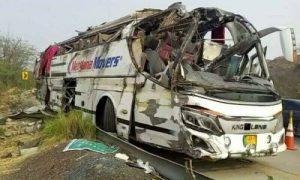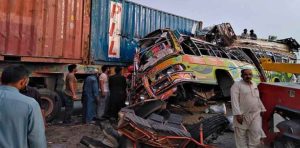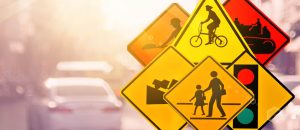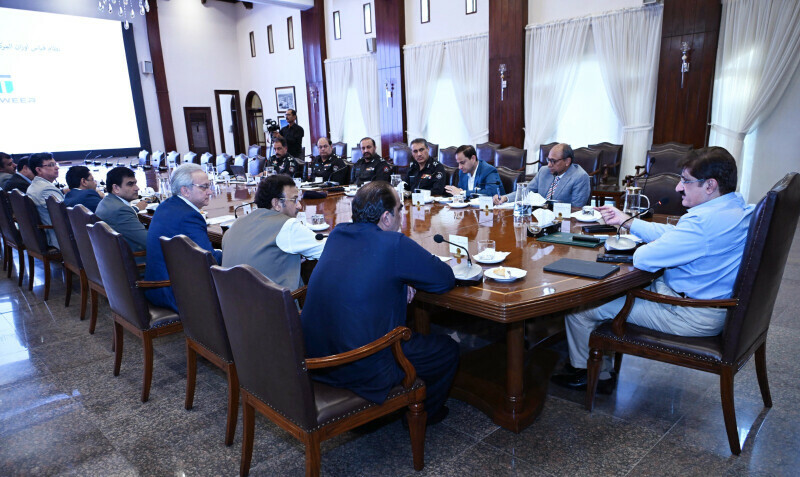Sindh CM takes urgent action to curb traffic accidents in Karachi, enforcing strict safety rules for heavy vehicles, driver testing, and smart law enforcement.
The action is being taken in the midst of a concerning rise in traffic accidents in the city, particularly those involving water tankers and dumpers, which, according to hospital data, killed about 500 people and injured 4,879 in 2024. Following demonstrations over the deaths of civilians, the provincial administration of Karachi banned the movement of heavy vehicles during the day and required them to get a vehicle fitness certificate.
CM Shah mandated during today’s meeting that all public service vehicles (PSVs), heavy transport vehicles (HTVs), and light transport trucks (LTVs) have dashcams, trackers, and underrun protection systems on the front, sides, and back.
In order to encourage safe and responsible driving, he also directed law enforcement organizations to randomly test HTV, LTV, and PSV drivers for drugs.

Provincial ministers Saeed Ghani, Mukesh Chawla, and Zia ul Hassan Lanjar, as well as Mayor Karachi Murtaza Wahab, Inspector General of Police Ghulam Nabi Memon, Deputy Inspector General of Traffic Police Pir Mohammad Shah, and other pertinent government representatives attended the meeting, which took place at CM House.
The chief minister called the high number of accidents “unacceptable” in order to vent his frustration.
“It is unacceptable that reckless driving is taking the lives of innocent people,” he stated.
By encouraging safe driving, prohibiting irresponsible and dangerous behavior at all costs, and lowering violations through accountability, he gave the city police instructions to strengthen traffic discipline.
Important choices for the city’s safe and secure traffic control were made by the chief minister.
Setting up safety equipment
The chief minister noted that the majority of big vehicles lacked dashcams and trackers. As a result, he mandated that all HTVs, LTVs, and PSVs came with dashcams, trackers, and front, side, and rear underrun protection mechanisms.
In order to prevent dangerous spills and instability, CM Murad decided to ban tankers without baffle plates and those with leaking or non-compartmentalized containers from operating on public roads.
He stated that fitness compliance must be guaranteed and that “this decision must be implemented from today.”
Vehicles with canceled fitness certificates will be seized and not permitted to return to the road until the transport department determined they were roadworthy, the CM instructed the traffic police.
Drivers’ drug tests
In order to promote safe and responsible driving, the CM made the historic decision to order the traffic police to randomly test HTV, LTV, and PSV drivers for drugs. Additionally, he gave the police orders to enforce the city’s speed limit.
“To lower the risk of fatal accidents, HTVs will be restricted to a maximum speed of 30 km/h within Karachi city limits,” he directed.

Unfaced electronic ticketing system
For efficient traffic law enforcement, CM Murad instructed Ziaul Hasan Lanjar, the home minister, to implement an automated and transparent e-ticketing system. Orders for interdepartmental integration were also issued by him.
“For improved coordination and more efficient enforcement, the Transport Department, Excise Department, Licensing Authority, Traffic Police, and Nadra must be digitally integrated,” he mandated.
Traffic Engineering Bureau Redesign
In order to better plan and carry out traffic control measures, the chief minister made the decision to revitalize the Traffic Engineering Bureau and place it under Mayor Wahab’s administrative responsibility. Additionally, he chose to mandate pre-licensing training.
He instructed the transportation and law enforcement agencies to “establish driving academies offering internationally recognized courses in theory, simulation, and practical training, making pre-licensing training mandatory.”
System of merit points
It was determined to implement a new point-based system to hold license holders responsible for persistent infractions after consulting with the police and the transport department.
The points system’s primary characteristics are that all drivers begin with 12 points, that infractions result in the deduction of points, and that the license is suspended at 0 points. Higher deductions would be the consequence of the serious infractions. After a predetermined amount of time—two years for minor offenses and three years for big offenses—the points would be returned.
Additionally, the point deduction system consists of:
- Two points are deducted for driving too fast, not wearing a helmet, and not using a seatbelt.
- Running red lights, a stop line, and reckless passing all result in a three-point deduction;
- Five points for a one-way infraction and careless driving
- Driving under the influence earns six points.
- Revocation of licenses for hit-and-run incidents immediately
If required, the CM instructed Lanjar to modify the traffic regulations.

Additionally, he ordered the police and the Excise & Taxation agency to begin a crackdown on unauthorized changes and infractions.
In addition to traffic infractions like driving without a valid license, riding without a helmet, triple riding on motorcycles, and motorcycles without necessary safety components (headlights, taillights, emergency lights, chain covers, and rearview mirrors), the ongoing operation must be made strict against the use of ostentatious license plates, tinted windows, and unapproved emergency accessories.
Committee for Implementation
To guarantee prompt implementation through executive orders, standard operating procedures, and legal modifications, the chief minister established a special committee made up of the secretary of excise and taxation, secretary of transportation, DIG driving license, and DIG traffic police.
CM Murad emphasized that the goal of these actions was to save lives and increase everyone’s safety on Karachi’s roads. “We need to take decisive action. “Our citizens’ lives are far too valuable to be lost as a result of carelessness and inadequate enforcement,” he said.
For the latest updates and insights on new developments, visit the NEWSON
Q1.Why has the Sindh government implemented new traffic safety measures in Karachi?
Due to a sharp rise in fatal traffic accidents, especially involving heavy vehicles like water tankers and dumpers, the Sindh government introduced strict reforms to improve road safety and reduce casualties on Karachi’s roads.
Q2. What are the new rules for heavy transport vehicles (HTVs) and public service vehicles (PSVs) in Karachi?
All HTVs, PSVs, and light transport vehicles (LTVs) must now be equipped with:
-
Dashcams
-
GPS trackers
-
Front, side, and rear underrun protection systems
These installations are mandatory to ensure accountability and prevent reckless driving.
Q3. Is there a ban on heavy vehicles during the day in Karachi?
Yes, the movement of heavy vehicles like dumpers and tankers is banned during the daytime in Karachi to reduce the risk of traffic accidents in densely populated areas.
Q4. What new safety standards are required for water tankers in Karachi?
Water tankers must now have:
-
Baffle plates to prevent liquid sloshing
-
Compartmentalized containers
-
No leaks
Tankers that do not meet these safety standards will be banned from operating on public roads.
Q5. Are drug tests mandatory for drivers in Karachi?
Yes. The traffic police will now randomly drug test drivers of HTVs, PSVs, and LTVs to ensure they are not under the influence while operating vehicles.


